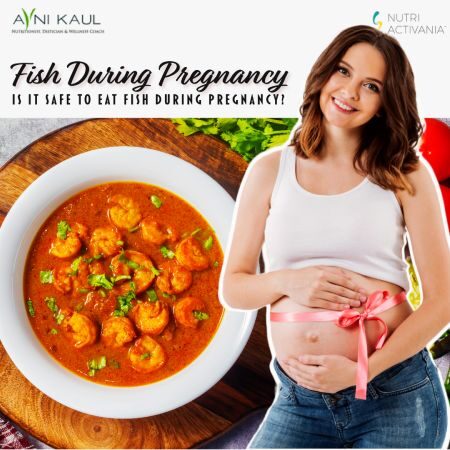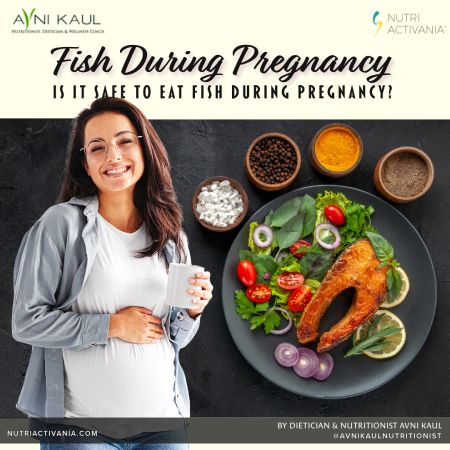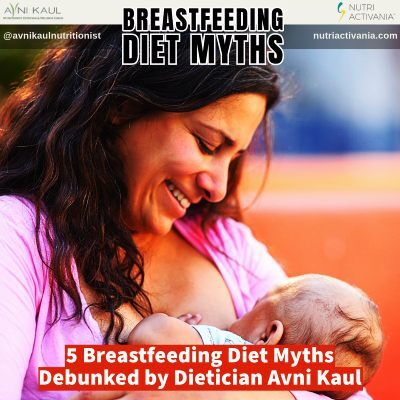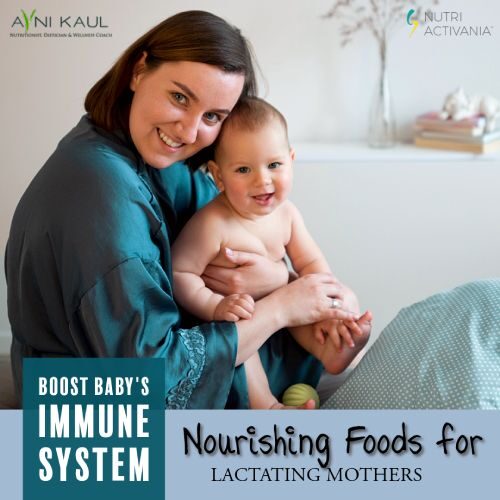Pregnancy is a beautiful journey filled with anticipation, joy, and responsibility. Expectant mothers are often bombarded with advice and guidelines on what to eat and what to avoid during this crucial period. One common dietary concern is the consumption of fish.
While fish is a valuable source of essential nutrients, it is essential to navigate this dietary choice cautiously during pregnancy. In this article, leading dietician for pregnancy Avni Kaul explains the safety of eating fish during pregnancy and offers some guidelines to help make informed choices.
What are the Benefits of Fish Consumption?
Fish is widely recognized for its numerous health benefits. It is an excellent source of high-quality protein, omega-3 fatty acids, vitamins, and minerals. Omega-3 fatty acids, in particular, play a vital role in the development of the baby’s brain and eyes. Additionally, fish consumption during pregnancy has been associated with a reduced risk of preterm birth and low birth weight.
What will Omega-3 Fatty Acids will do?
The omega-3 fatty acids found in fish, such as EPA (eicosapentaenoic acid) and DHA (docosahexaenoic acid), are crucial for fetal brain development and may also contribute to a lower risk of postpartum depression in mothers. These nutrients are primarily found in fatty fish, such as salmon, mackerel, trout, and sardines. Including these fish in your diet can provide a substantial boost to your omega-3 intake.
How to clear doubts pertaining to mercury?
One of the primary reasons for caution when eating fish during pregnancy is mercury contamination. Mercury is a toxic metal that can negatively affect the developing nervous system of the fetus. Larger predatory fish, such as sharks, swordfish, king mackerel, and tilefish, tend to accumulate higher levels of mercury. Pregnant women should avoid these high-mercury fish altogether.
What are the Safe Fish Choices?
While avoiding high-mercury fish is crucial, there are plenty of safe fish options to include in your pregnancy diet. Low-mercury fish like shrimp, salmon, catfish, and tilapia can be consumed in moderation. Canned light tuna is also generally considered safe, but it should be limited to two servings per week.
What to do while Cooking Fish?
How you prepare fish also matters during pregnancy. It is essential to cook fish thoroughly to kill any potentially harmful bacteria or parasites. Avoid raw or undercooked seafood as it poses a risk to both you and your baby. Grilling, baking, or steaming fish are safe and healthy cooking methods.
Balancing Act
When incorporating fish into your pregnancy diet, it is essential to strike a balance. Aim for two to three servings of low-mercury fish per week to reap the benefits of essential nutrients without exposing yourself to excessive mercury levels. Consult your healthcare provider to determine the right amount for your individual needs.
Supplements as an Alternative
If you are concerned about mercury exposure or find it challenging to include fish in your diet, you can consider omega-3 supplements derived from fish oil or algae. These supplements can provide the necessary omega-3 fatty acids without the potential risks associated with consuming whole fish.
In conclusion, fish can be a valuable addition to a healthy pregnancy diet due to its abundance of essential nutrients, particularly omega-3 fatty acids. However, it is crucial to be selective and mindful of your choices.
Avoid high-mercury fish and opt for low-mercury options that are safe for you and your baby. Cooking fish thoroughly and maintaining a balanced approach will help you enjoy the benefits of fish consumption during pregnancy while minimizing potential risks. As with any dietary decisions during pregnancy, it is best to consult your healthcare provider for personalized advice and recommendations.





